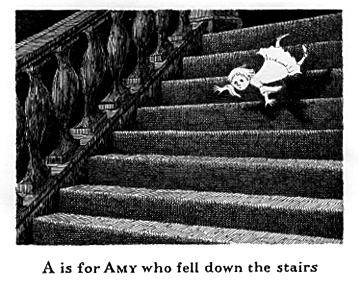Critics on Criticism: William Carlos Williams
 What follows are excerpts from a kind of (scathing) review of a (scathing) review. WCW’s essay, called “A Point for American Criticism,” is directed at Rebecca West, who had published some comments on Ulysses that WCW found wanting in every respect. Sometimes he says “they,” presumably meaning West and her critical cohort. So, from his red wheelbarrow full of glorious vitriol:
What follows are excerpts from a kind of (scathing) review of a (scathing) review. WCW’s essay, called “A Point for American Criticism,” is directed at Rebecca West, who had published some comments on Ulysses that WCW found wanting in every respect. Sometimes he says “they,” presumably meaning West and her critical cohort. So, from his red wheelbarrow full of glorious vitriol:
Forward is the new. It will not be blamed. It will not force itself into what amounts to paralyzing restrictions. It cannot be correct. It hasn’t time. ….
Comment if you like on Joyce’s narcissism but what in the world has it to do with him as a writer? Of course it has, as far as prestige is concerned, but not as to writing….But the expedient is convenient if we want to gain a spurious (psychologic, not literary) advantage for temporal purposes.
What Joyce is saying is a literary thing. It is a literary value he is forwarding. He is a writer. Will this never be understood? ….
The thing is, they want to stay safe, they do not want to give up something, so they enlist psychology to save them. But under it they miss the clear, actually the miraculous, benefits of literature itself. A silent flower opening out of the dung they dote on. They miss Joyce blossoming pure white above their heads. ….
She speaks of transcendental tosh, of Freud, of Beethoven’s Fifth Symphony, of anything that comes into her head, but she has not yet learned–though she professes to know the difference between art and life–the sentimental and nonsentimental–that writing is made of words. ….
Here Joyce has so far outstripped the criticism of Rebecca West that she seems a pervert.
criticism of criticism: think first and speak second–or not at all
adapted from a letter I wrote in an ongoing exchange I’ve been having with another writer/editor about the state of book reviews in the “online scene”…
This is a dynamic, emergent scene we’ve got going here, and we all learn on the job to some degree–me as much as anyone–but my baseline expectation is that if someone puts their work out into the public sphere, they are asserting that it belongs there, and are prepared for it to be judged against whatever else is out there already. Not in the sense of competition, but in the sense of discerning value–as in, I took the time to read this, what am I getting back for my time? What does this thing purport to do, and has it succeeded in doing so? I don’t think that’s too harsh a position to take, in fact it seems like the absolute bare minimum. (Our standards, probably, should be much higher than they are if we ever want to push ourselves beyond what we’ve already achieved–but we don’t have time to get into that right now.)
I think the real problem is that many people in our scene want to “review” because they want to be published, and the near complete absence of standards for reviews means you can pretty much always get a review “published” somewhere or other. But the people who write such “reviews” don’t have anything to say about a given book beyond “I liked it” or “this is my friend” or “this sucked.” I’m not sure if that’s because they actually can’t read critically, if they simply can’t articulate their thoughts, or if they’re simply disinclined to exert extra effort when the bar for achieving the “end goal” of publication on this or that website is so low it couldn’t possibly be out of reach–may possibly in fact have to be reached down for.
Or else people want to “review” books for the same reason they want to click the “like” icon under somebody’s facebook post. And I’ll be the first one to defend that kind of impulse. There’s a place for that. I write blog posts like that all the time. Sometimes it really is all that you want to say, or sometimes the work doesn’t warrant extended consideration. It’s there to be taken or left. But praising or damning a book is the work of a single sentence, paragraph at most. If the review is to be any longer–that is, if it is to truly *be* a review, it needs to do something more, or anyway, something else
Criticism and reviews are both meta-forms–if they don’t in some way amplify or complicate the subject of their focus, then they shouldn’t exist. So much of what passes for reviews or criticism that I read online seems not simply to fail to contribute to my understanding of the work under review, but actually to disrupt that understanding, or worse, to degrade the work. Put as simply and viciously as I can: a “reviewer”‘s windy, incoherent, sychophantic paean to the virtues of _______ is going to leave the reader (that is, the reader of the review) less inclined to read the work under review, because the work’s primary champion seems to be some kind of idiot. The drooling happiness of the idiot impresses nobody, and nobody wants to invest their money or time in the book that impressed the idiot. We understand this implicitly when we attack the NYT’s staff reviewers, so why is it so hard to see–and harder to still to call out–when its happening among our own ranks?
October 29th, 2009 / 12:08 pm
Is Masocriticism the Only Way?
 When I teach undergrad lit classes, I often start with a little chat about why we read, what poetry and stories do for us, or, in other words, why they are required to take the class. A few times, I’ve brought up the Kafka quote about a book serving as an ax for the frozen sea within us, or the Dickinson one about how she knows something is a poem if she feels like the top of her head has been blown off. Invariably, my students fail to see why either of these is a desirable outcome.
When I teach undergrad lit classes, I often start with a little chat about why we read, what poetry and stories do for us, or, in other words, why they are required to take the class. A few times, I’ve brought up the Kafka quote about a book serving as an ax for the frozen sea within us, or the Dickinson one about how she knows something is a poem if she feels like the top of her head has been blown off. Invariably, my students fail to see why either of these is a desirable outcome.
Yet there is certainly an enduring trend in some circles of reviewing and back-cover-blurbing wherein the highest praise for a book is how much injury it has done to the reader-critic. “That book destroyed/killed/frightened/destabilized/wrecked me” seems always to be a compliment. It’s trendy to say that reading oughtn’t be therapy, or comfort, or safety, or anything other than terribly, personally debilitating.
Is this mere trend, a new way to say the same thing, or is it really this way? Are we all so desensitized that we’re happy for any kind of feeling? Or are writers (who tend to be the ones behind this particular brand of criticism) engaged in elaborate sm rituals, in which we get to be sadists when we write and masochists when we read? Is there room for reading good prose or poetry to act as a stopgap, however illusive and broken and temporary, against impending death, and betrayal, and loss?
October 22nd, 2009 / 5:56 pm
Friday Frustration

A while back, Blake Butler posted a brief snippet that said something like, “It’s not okay to like everything,” and I’ve been thinking that statement through since. A series of random events over the past few weeks has me thinking the corollary is also true. It is not okay to hate everything, either. Don’t get me wrong. I don’t like everything. I’m not an optimist or a perky individual. I have a bitch streak a mile long. It just seems some people are never happy or satisfied with anything—and those people are completely unwilling or unable to appreciate things that do not fit into the constraints of what they like or think is good [writing, art, design, living, whatever] or have become accustomed to. I’m really burnt out on relentless cynicism and negativity and snarky judgment. When someone either loves or hates everything, I find it hard to take them seriously or give their opinions much credence. Isn’t criticism more effective when used judiciously?
Learn to be MEAN WEEK from the best of them

“Critics are the sum of their biases—they begin as arbitraries and end as certainties (the course of my own criticism has sometimes been the other way round). You can’t stand that ditherer Coleridge, she can’t stand that whiner Keats, I can’t stand that dry fussbudget Wordsworth, and we all hate Shelley—poets are Rorschach tests.”
And just to keep the MEAN WEEKness nice and fair, here’s Brian Henry at Verse Magazine, trashing William Logan’s then-new collection of criticism. Here’s a taste: “Despite his claim to read too many new books of poetry, Logan seems oddly unaware of the state of contemporary American poetry. He admits that trade presses have largely given up on poetry, but one would be hard-pressed to glean this from this selection of reviews.” OOOOOOOOOhhhhhh.
October 13th, 2008 / 4:23 pm
